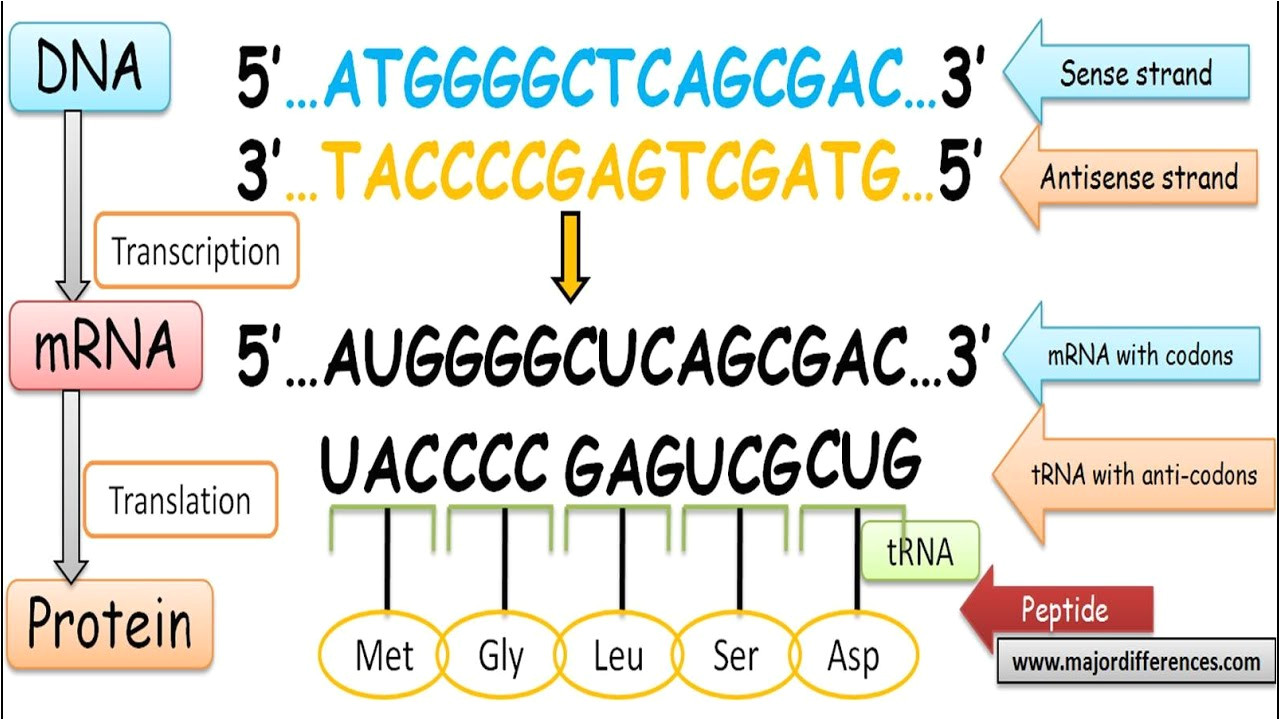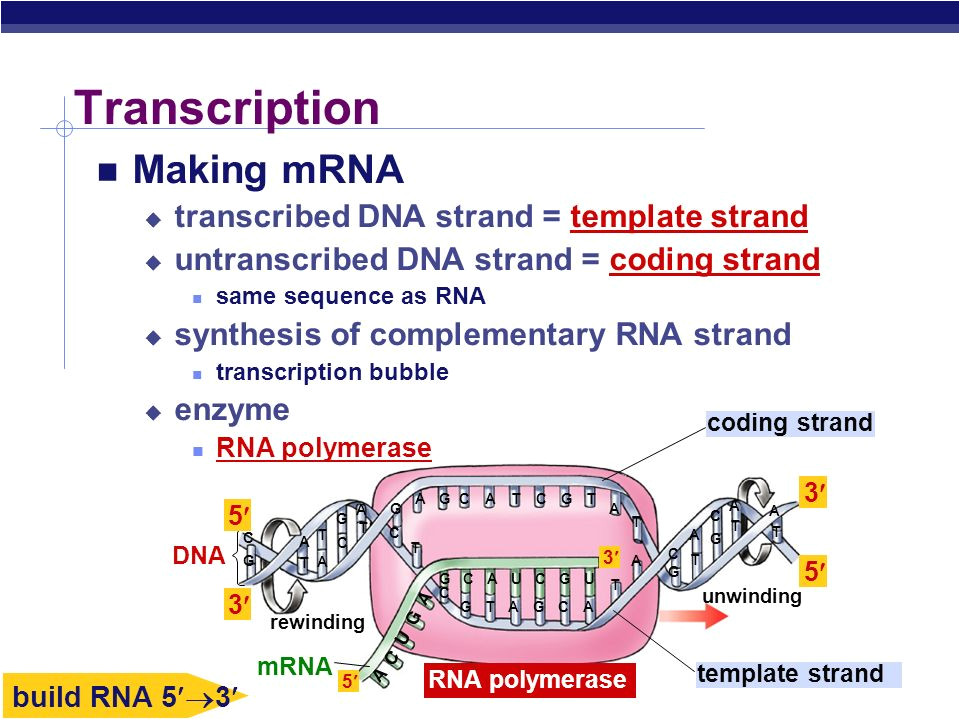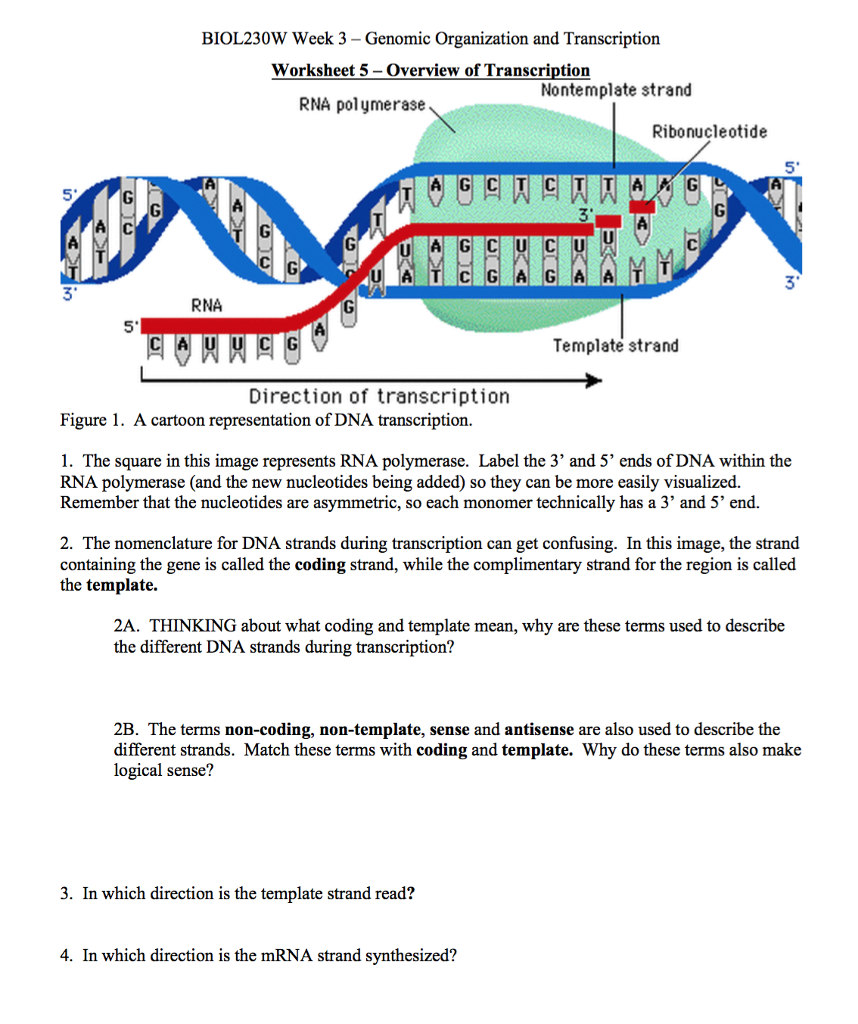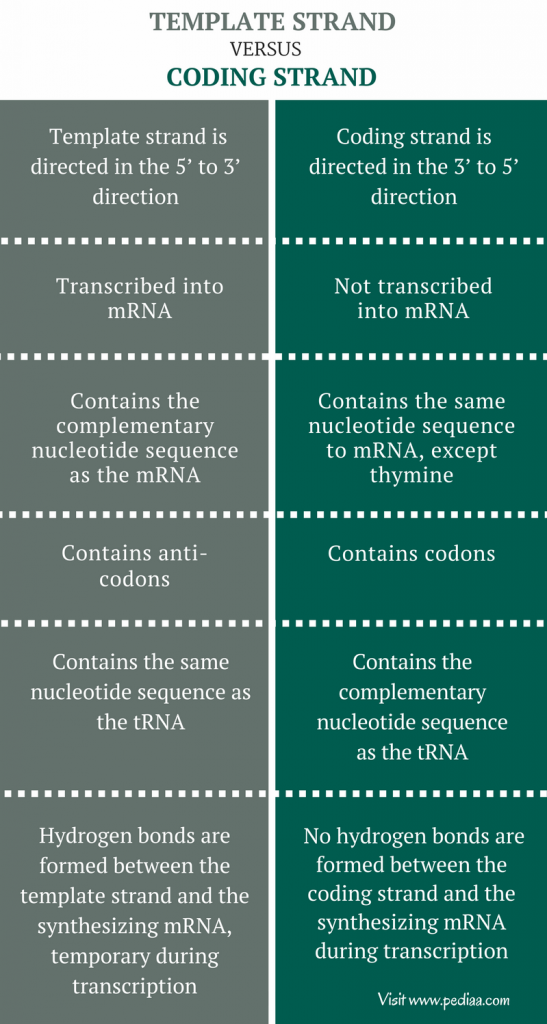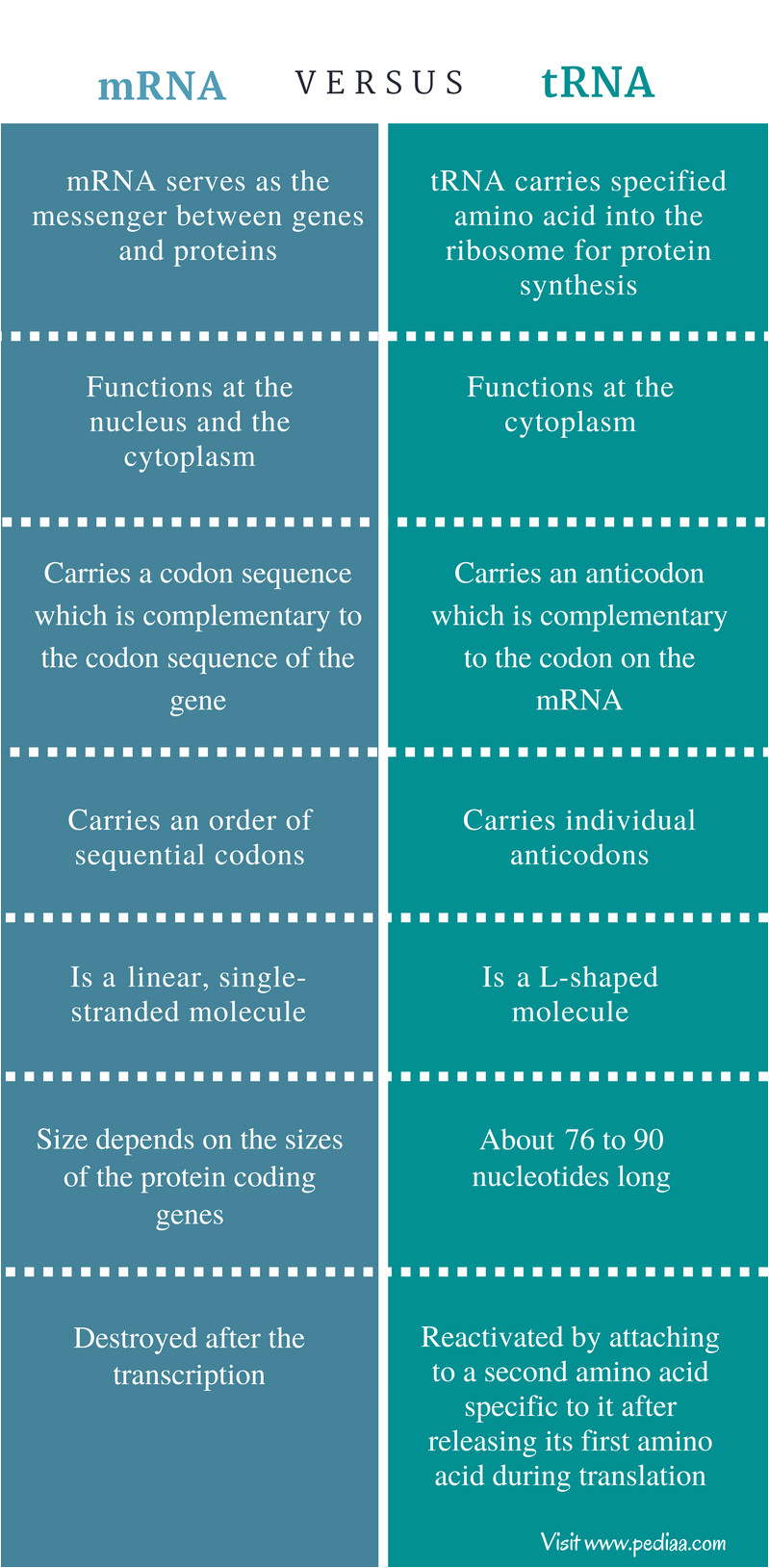Difference Between Coding Strand And Template Strand
Difference Between Coding Strand And Template Strand - Orfs are sequence segments that begin with a start codon (atg, though see my note below) and end with a stop codon (taa, tag, tga) when read from 5' to 3' in 3. The dna strand that codes for the relevant gene is known as the coding strand. Template strand functions as a base for the rna synthesis. Web one strand, the template strand, serves as a template for synthesis of a complementary rna transcript. It is called the coding strand because it contains the information for the synthesis of a functional protein. Given a dna sequence alone, you can annotate open reading frames (orfs) in order to identify the coding strand, with the caveat that not all orfs are genes. The template strand is directed in the 5’ to 3’ direction. Web which deviation between document or coding strand is principally due to who following properties: Template strand is directed in the 5’ to 3’ direction. The template strand does not have any complementary sequence.
The coding strand functions to determine the correct. Template strand functions as a base for the rna synthesis. Orfs are sequence segments that begin with a start codon (atg, though see my note below) and end with a stop codon (taa, tag, tga) when read from 5' to 3' in 3. The dna strand that codes for the relevant gene is known as the coding strand. The other strand, the coding strand, is identical to the rna transcript in sequence, except that it has uracil (u) bases in place of thymine (t) bases. How do the coding strand and template strand vary from one another? The coding strand has a complementary nucleotide sequence. Web one strand, the template strand, serves as a template for synthesis of a complementary rna transcript. Understand that within a single piece of dna, either strand can be used as the template for different genes, but the rna will still be produced from 5’ → 3’. It is called the coding strand because it contains the information for the synthesis of a functional protein.
Visit byju’s biology for more interesting topics. Given a dna sequence alone, you can annotate open reading frames (orfs) in order to identify the coding strand, with the caveat that not all orfs are genes. The template strand does not have any complementary sequence. The other strand, the coding strand, is identical to the rna transcript in sequence, except that it has uracil (u) bases in place of thymine (t) bases. The coding strand has a complementary nucleotide sequence. Template strand functions as a base for the rna synthesis. Web the coding strand is the dna strand which cannot act as a template and its base sequence is similar to its primary rna transcript. Understand that within a single piece of dna, either strand can be used as the template for different genes, but the rna will still be produced from 5’ → 3’. The dna strand that codes for the relevant gene is known as the coding strand. Template strand is directed in the 5’ to 3’ direction.
Difference Between Template and Coding Strand williamsonga.us
Web one strand, the template strand, serves as a template for synthesis of a complementary rna transcript. Orfs are sequence segments that begin with a start codon (atg, though see my note below) and end with a stop codon (taa, tag, tga) when read from 5' to 3' in 3. Web the coding strand is directed in the 3’ to.
Difference Between Template and Coding Strand Compare the Difference
Orfs are sequence segments that begin with a start codon (atg, though see my note below) and end with a stop codon (taa, tag, tga) when read from 5' to 3' in 3. Template strand is directed in the 5’ to 3’ direction. Web one strand, the template strand, serves as a template for synthesis of a complementary rna transcript..
Difference Between Template and Coding Strand williamsonga.us
The template strand is directed in the 5’ to 3’ direction. The coding strand functions to determine the correct. Both template and coding strand are the composition of dna molecules. Template strand is directed in the 5’ to 3’ direction. The coding strand has a complementary nucleotide sequence.
Template And Nontemplate Strand Flyer Template
The template strand does not have any complementary sequence. Both template and coding strand are the composition of dna molecules. Web one strand, the template strand, serves as a template for synthesis of a complementary rna transcript. Web the coding strand is directed in the 3’ to 5’ direction. It is called the coding strand because it contains the information.
(PDF) Difference Between Template and Coding Strand
The dna strand that codes for the relevant gene is known as the coding strand. Orfs are sequence segments that begin with a start codon (atg, though see my note below) and end with a stop codon (taa, tag, tga) when read from 5' to 3' in 3. How do the coding strand and template strand vary from one another?.
Difference Between Template and Coding Strand
It is called the coding strand because it contains the information for the synthesis of a functional protein. Given a dna sequence alone, you can annotate open reading frames (orfs) in order to identify the coding strand, with the caveat that not all orfs are genes. Visit byju’s biology for more interesting topics. Web the coding strand is directed in.
Template And Nontemplate Strand Flyer Template
The template strand does not have any complementary sequence. The dna strand that codes for the relevant gene is known as the coding strand. Template strand functions as a base for the rna synthesis. Understand that within a single piece of dna, either strand can be used as the template for different genes, but the rna will still be produced.
Dna Dann How To Fix. Word For Mac
The other strand, the coding strand, is identical to the rna transcript in sequence, except that it has uracil (u) bases in place of thymine (t) bases. Orfs are sequence segments that begin with a start codon (atg, though see my note below) and end with a stop codon (taa, tag, tga) when read from 5' to 3' in 3..
Template vs. Nontemplate (Noncoding vs. Coding strand of DNA) YouTube
Understand that within a single piece of dna, either strand can be used as the template for different genes, but the rna will still be produced from 5’ → 3’. Web one strand, the template strand, serves as a template for synthesis of a complementary rna transcript. The other strand, the coding strand, is identical to the rna transcript in.
Difference Between Template and Coding Strand williamsonga.us
Web the coding strand is the dna strand which cannot act as a template and its base sequence is similar to its primary rna transcript. Given a dna sequence alone, you can annotate open reading frames (orfs) in order to identify the coding strand, with the caveat that not all orfs are genes. Both template and coding strand are the.
The Coding Strand Functions To Determine The Correct.
Template strand is directed in the 5’ to 3’ direction. Web one strand, the template strand, serves as a template for synthesis of a complementary rna transcript. Web which deviation between document or coding strand is principally due to who following properties: Both template and coding strand are the composition of dna molecules.
Web The Coding Strand Is Directed In The 3’ To 5’ Direction.
It is called the coding strand because it contains the information for the synthesis of a functional protein. The coding strand has a complementary nucleotide sequence. Web difference between template and coding strand names. The other strand, the coding strand, is identical to the rna transcript in sequence, except that it has uracil (u) bases in place of thymine (t) bases.
The Template Strand Does Not Have Any Complementary Sequence.
Understand that within a single piece of dna, either strand can be used as the template for different genes, but the rna will still be produced from 5’ → 3’. Given a dna sequence alone, you can annotate open reading frames (orfs) in order to identify the coding strand, with the caveat that not all orfs are genes. Template strand functions as a base for the rna synthesis. Web the coding strand is the dna strand which cannot act as a template and its base sequence is similar to its primary rna transcript.
The Template Strand Is Directed In The 5’ To 3’ Direction.
How do the coding strand and template strand vary from one another? Orfs are sequence segments that begin with a start codon (atg, though see my note below) and end with a stop codon (taa, tag, tga) when read from 5' to 3' in 3. The dna strand that codes for the relevant gene is known as the coding strand. Visit byju’s biology for more interesting topics.
